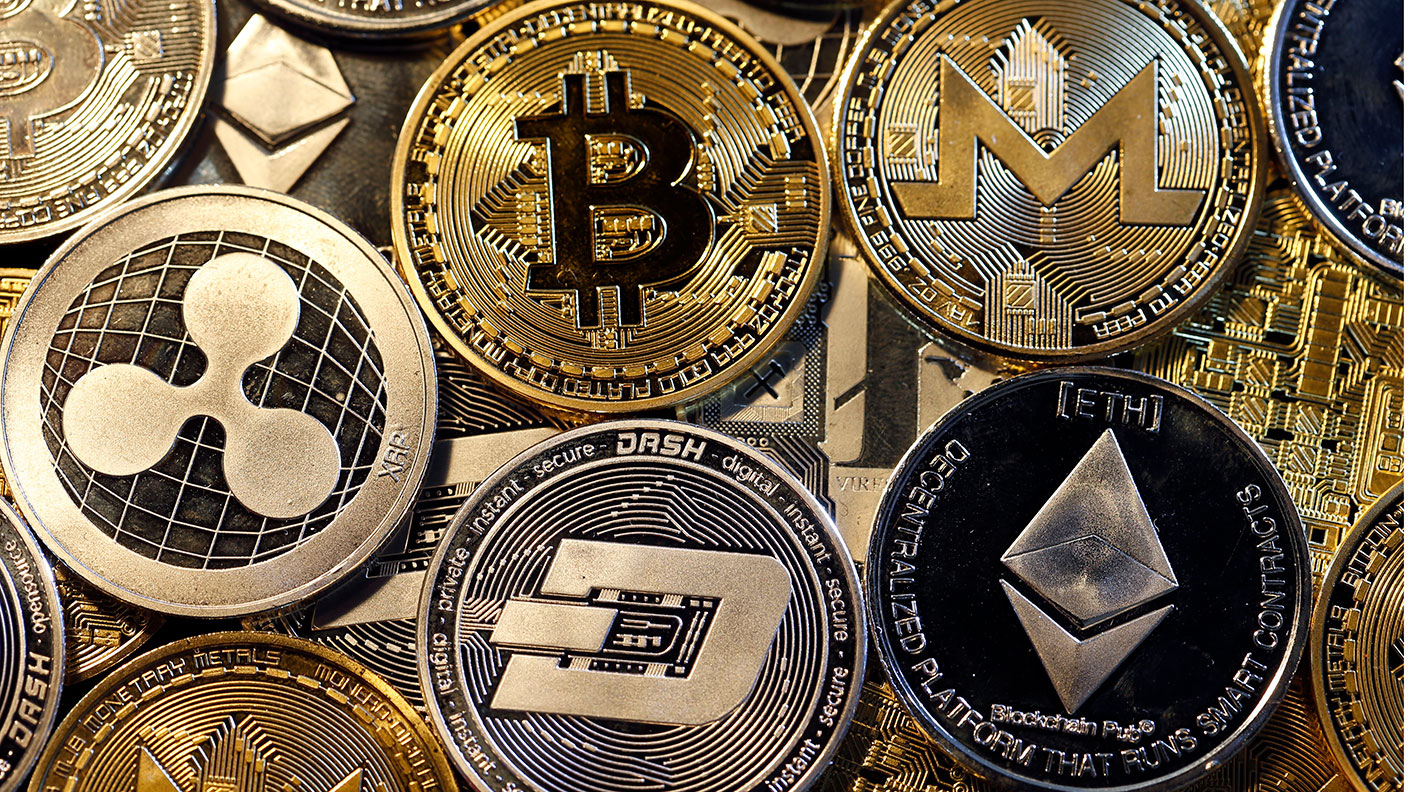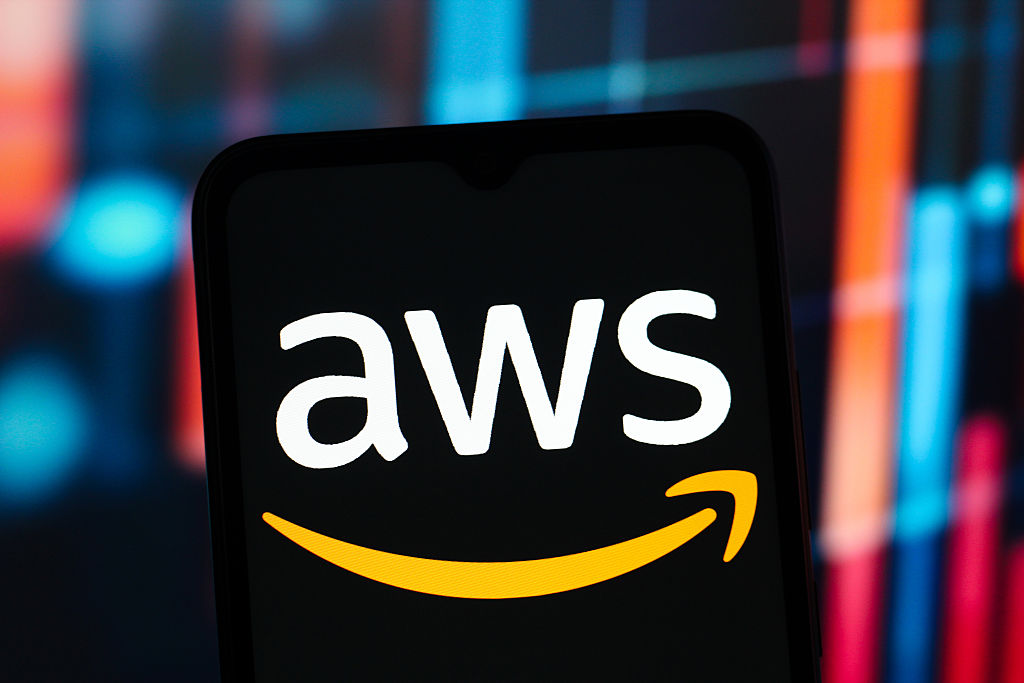Big Tech on steroids: why the 2020s will be the “decade of the DAO”
Big tech companies have transformed the way we live our lives. But if you thought they were disruptive, you haven’t seen anything yet. As Dominic Frisby explains, we’re about to enter the age of the “decentralised autonomous organisation”, or DAO.


Get the latest financial news, insights and expert analysis from our award-winning MoneyWeek team, to help you understand what really matters when it comes to your finances.
You are now subscribed
Your newsletter sign-up was successful
Want to add more newsletters?

Twice daily
MoneyWeek
Get the latest financial news, insights and expert analysis from our award-winning MoneyWeek team, to help you understand what really matters when it comes to your finances.

Four times a week
Look After My Bills
Sign up to our free money-saving newsletter, filled with the latest news and expert advice to help you find the best tips and deals for managing your bills. Start saving today!
When it comes to taxes, the tech giants – Amazon, Google, Facebook and Apple et al – have for over a decade now made Western governments look like fools. Heck, even Starbucks has. Their globalised business models, with IP here, trademarks there, profits somewhere else, have meant that they can pretty much pay as little or as much tax as they see fit, and there is not a lot governments have been able to do about it.
Tax systems, bound by national borders and designed around the physical economy, have been exposed for the antiquated megaliths they are. Local individuals and companies have been burdened with heavy taxes so that governments can subsidize their out-of-control spending. The globalised digital behemoths on the other hand have got away almost scot free.
Well, if you thought governments were unprepared for the disruption brought to their revenue models by the tech giants of the 2000s and 2010s, wait till you see how unprepared they are for “decentralised autonomous organisations”, aka DAOs. I’ll bet you less than 5% of government ministers even know what a DAO is. Nevertheless, the 2020s will be the decade of the DAO.
MoneyWeek
Subscribe to MoneyWeek today and get your first six magazine issues absolutely FREE

Sign up to Money Morning
Don't miss the latest investment and personal finances news, market analysis, plus money-saving tips with our free twice-daily newsletter
Don't miss the latest investment and personal finances news, market analysis, plus money-saving tips with our free twice-daily newsletter
What is a DAO?
When “Satoshi Nakamoto” designed bitcoin, one of his key aims was to create a money system that had no central point of failure. Previous alternative money systems, he argued, such as Digicash and Digigold, had failed because there was a central company, a central office that could be shut down. Once this central point was shut down, the system came tumbling down with it.
So, intrinsic to bitcoin’s design, was that the system functioned on a distributed network – on multiple computers in multiple jurisdictions around the world. You might be able to take out one or more computers or nodes on the network, but you couldn’t take them all down. And it is the combined power of all the machines operating on the network that makes bitcoin so formidable. A government can make bitcoin illegal, but the computer power required to take down the network is so immense that it is almost impossible. This was Nakamoto’s blockchain.
Now organisations are following the same model. With DAOs, like bitcoin, there is no central body to close down or tax. These organisations operate on distributed blockchain networks with no company HQ, no formal organisation at the centre, no base in any jurisdiction and no central point of failure. Their currencies are their own issued tokens; digital, existing outside fiat economies. Their platforms and businesses will be automated by code, often written on an open-source basis.
Governments are trying to impose taxes, censorship and other rules on the likes of Facebook, Twitter, YouTube, Uber and AirBnB. How will they do that to the social network, the video-, ride- or flat-sharing platform is decentralised? Many of the often highly libertarian developers in the blockchain space have even stated that their intention with DAOs is to replace the state altogether. If they deprive it of essential tax revenue, they’ll go a long way to doing that.
There are many reasons tech stocks have been able to grow at the phenomenal rate they have since the late 1990s. One has been the incredible product or service they have been able to offer – Google’s search engine, Apple’s phones and computers, Amazon’s shopping and delivery. Another has been the sheer scalability of digital tech – Google can make a change to its search engine and billions benefit; a brilliant app need only be uploaded once, but it can be downloaded billions of times.
But also, with valuations based as much on users as on profits, tech companies have not been held back by the heavy taxes imposed on the physical economy. Not having to leak capital to the tax man, means they can reinvest in their own companies, develop quicker and better products and then offer them to customers cheaper. Well, these same three factors all apply to DAOs, only on steroids. DAOs are going to be huge.
How to invest in DAOs
Picking out individual opportunities is a lottery. If this were the dotcom boom, we would be in about 1997. We haven’t even had the first proper hype cycle yet. Google and Facebook haven’t even been invented, and Amazon is still only selling books. The tech is still highly experimental and we just don’t know who the winners will be. I couldn’t begin to start singling them out, though I do know they are there.
There isn’t a Nasdaq exchange where they all list – they won’t even list on an exchange – nor is there an exchange-traded fund that tracks them. But the future multi-national, trillion-dollar behemoths are all lurking somewhere in the cryptoverse.
There are products that track baskets of coins and products, but even singling these out is a minefield. Familiarizing yourself with the decentralised exchanges, where these products are traded will take several days of learning.
But make no mistake – decentralised tech is the opportunity of the next decade. If you’re a youngster setting out on a career, go and look for opportunities there. You could make a lot of money in just a few years.
And if you’re an oldster, researching investment opportunities, you know where to look. But remember it’s the Wild West. There will be huge winners, but most projects will go the way of dotcom.
Perhaps one vehicle is to look at the coins on which many of these platforms will be built – the likes of ethereum, cardano, polkadot. I have a fondness for a little known coin by the name of decred (short for decentralised credits), which you can buy at crypto exchanges such as Binance, Poloniex and Bittrex.
Why do I like decred? It’s under-hyped and the dev team is superb. There are perhaps thirty or forty exceptional developers in the space. Six of seven of them work on bitcoin. A good three or four of them are in decred. When you have no idea which horse is going to win, betting on the stable, trainer or jockey is often not such a bad strategy.
Daylight Robbery – How Tax Shaped The Past And Will Change The Future is now out in paperback at Amazon and all good bookstores with the audiobook, read by Dominic, on Audible and elsewhere.
Get the latest financial news, insights and expert analysis from our award-winning MoneyWeek team, to help you understand what really matters when it comes to your finances.

-
 Should you buy an active ETF?
Should you buy an active ETF?ETFs are often mischaracterised as passive products, but they can be a convenient way to add active management to your portfolio
-
 Power up your pension before 5 April – easy ways to save before the tax year end
Power up your pension before 5 April – easy ways to save before the tax year endWith the end of the tax year looming, pension savers currently have a window to review and maximise what’s going into their retirement funds – we look at how
-
 Amazon stock falls as AWS results underwhelm
Amazon stock falls as AWS results underwhelmApple stock rose after earnings on a return to growth in China; Amazon's share price fell despite an earnings beat
-
 Halifax: House price slump continues as prices slide for the sixth consecutive month
Halifax: House price slump continues as prices slide for the sixth consecutive monthUK house prices fell again in September as buyers returned, but the slowdown was not as fast as anticipated, latest Halifax data shows. Where are house prices falling the most?
-
 Rents hit a record high - but is the opportunity for buy-to-let investors still strong?
Rents hit a record high - but is the opportunity for buy-to-let investors still strong?UK rent prices have hit a record high with the average hitting over £1,200 a month says Rightmove. Are there still opportunities in buy-to-let?
-
 Pension savers turn to gold investments
Pension savers turn to gold investmentsInvestors are racing to buy gold to protect their pensions from a stock market correction and high inflation, experts say
-
 Where to find the best returns from student accommodation
Where to find the best returns from student accommodationStudent accommodation can be a lucrative investment if you know where to look.
-
 The world’s best bargain stocks
The world’s best bargain stocksSearching for bargain stocks with Alec Cutler of the Orbis Global Balanced Fund, who tells Andrew Van Sickle which sectors are being overlooked.
-
 Revealed: the cheapest cities to own a home in Britain
Revealed: the cheapest cities to own a home in BritainNew research reveals the cheapest cities to own a home, taking account of mortgage payments, utility bills and council tax
-
 UK recession: How to protect your portfolio
UK recession: How to protect your portfolioAs the UK recession is confirmed, we look at ways to protect your wealth.